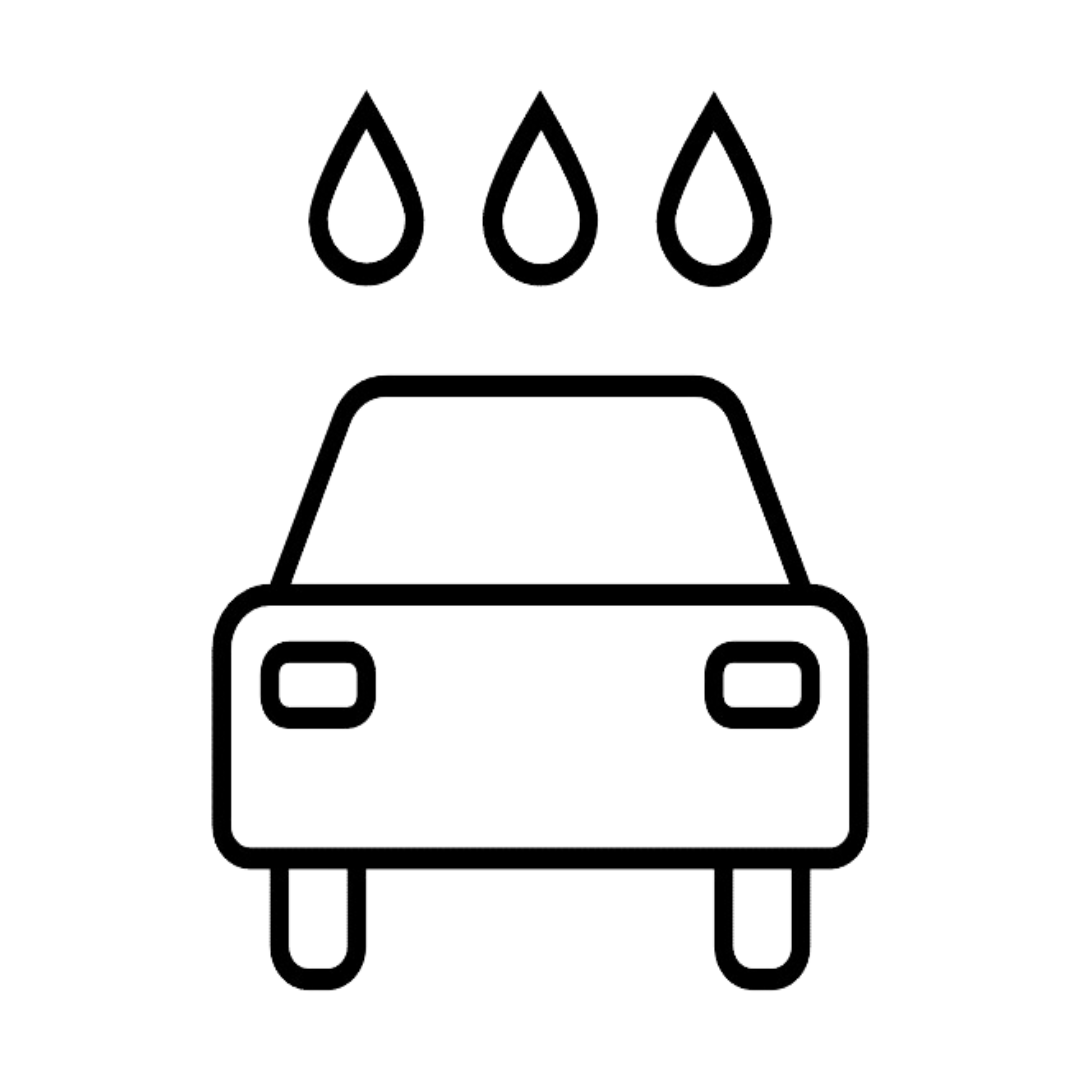Realising the potential of renewable ethanol biorefineries for a more autonomous Europe
European biorefineries can help us create a better tomorrow – one in which we reduce carbon emissions, secure food systems and ensure energy independence
Renewable ethanol, also known as bioethanol, is a sustainable fuel alternative that can help us power today’s cars and accelerate the phase-out of fossil fuels – while building a more resilient and strategically independent Europe.
Made from multi-purpose crops and agricultural waste, bioethanol is the result of close collaboration between European farmers and biorefineries. Beyond providing us with a fuel alternative that can fast-track the transition to a low-carbon economy, European biorefineries also produce high-quality animal feed and other valuable by-products such as biogenic CO2, commonly used for carbonated drinks.
Despite their importance to European food, energy and industrial sectors, these products still come in large quantities from overseas. Why overlook a homegrown, versatile, and low-carbon fuel solution that can help us build the future we aspire to today?
It’s time to support European biorefineries and realise their full potential to meet our carbon neutrality targets, strengthen our food systems and pave the way for a more sustainable future.
And with renewable ethanol, that future can start today.
How does European bioethanol contribute to a more resilient EU?

It can help reduce greenhouse emissions from transport today

It supports farmers and contributes to our food supply

It reduces our need for fossil CO2 used in several industries
Meet the people behind the EU biorefineries
Every day, ethanol biorefineries produce feed, food, and fuel for Europe. Meet the people who make it happen and discover their stories.
European renewable ethanol can help defossilise transport fuel and reduce greenhouse emissions today
European renewable ethanol is a domestic solution to address Europe’s dependence on fossil fuels. In 2023, bioethanol from ePURE members and other EU producers reduced greenhouse gas emissions by more than 79% compared to fossil fuels – a figure that only rises year by year.
Most cars on the road today can effortlessly make the switch to ethanol-blended fuels – like E10 (which contains up to 10% ethanol) – and so can most petrol stations. If all petrol cars in the EU were to switch to E10 fuel today, the impact on CO2 emissions would be equivalent to taking 8.2 million cars off the road and avoiding 42 million barrels of oil imports.
The EU Green Deal aims to drastically reduce greenhouse gas emissions – but with alternatively powered cars still comprising a small minority of our current car fleet, electrification cannot be the only solution if we are to meet our targets in time. European biofuels can make a meaningful impact in achieving the EU’s 2030 emission reduction targets, improving our energy independence and creating a more resilient Europe.
Find out the latest
facts and figures on EU renewable ethanol
Read more about how renewable ethanol helps achieve EU Green Deal targets
Listen to the
‘Fuelling the Future’ podcast with ePURE’s David Carpintero
Renewable ethanol biorefineries support European farmers and contribute to food supplies
Using a small fraction of arable land without danger of deforestation, European biorefineries produce food, feed and renewable fuel that complies with strict EU legislation.
When it comes to using multipurpose crops, it’s not a matter of choosing between fuel or food: it’s producing fuel and food. In 2023, ePURE members’ ethanol biorefineries produced 6.5 million tonnes of food and high-protein – more food and feed produced than fuel.
What’s more? Renewable ethanol also fosters rural economies and supports farmers. Every year, the production of crop-based biofuels, including bioethanol, generates over €6.6 billion in revenue for farmers – boosting Europe’s self-sufficiency and improving our food supply.
It reduces our need for fossil CO2 used for carbonated drinks and other industries
When producing bioethanol, European biorefineries also generate and capture biogenic CO2, which exceeded 1.4 million tonnes in 2023 alone.
This biogenic carbon, which is already present in the atmosphere, is released by plants and agricultural waste as they decompose. By capturing and reusing this biogenic CO2 instead, we’re not only making more efficient use of existing resources, but also reducing our need to use fossil CO2. A circular process in which nothing is lost.
Whether it’s for putting the bubbles in your drinks, improving plant growth across or for producing e-fuels, biogenic carbon is a versatile product that can be used in a wide range of industries. All of this helps to reduce Europe’s dependence on fossil CO2 and ensure a more robust domestic supply.
FOOD, FEED & FUEL
How do European biorefineries contribute to a more resilient EU?
The unified voice of the European renewable ethanol industry
Our biorefineries
ePURE unites 50 bioethanol plants across Europe, accounting for about 85% of EU renewable ethanol production. Our members across the continent harness innovation, sustainability, and socially inclusive change in the fight for a more resilient, carbon-neutral Europe.
How can you support us in realising the potential of European biorefineries?
- Share our factsheets, reports, or news with someone you know.
- Follow us on social media:
Frequently Asked Questions (FAQ)
What is European renewable ethanol?
European renewable ethanol (or bioethanol) is a biofuel produced sustainably from European crops and agricultural waste and residues.
Renewable ethanol is produced in biorefineries by fermenting sugars, which either come from crops or agricultural waste and residues.
What is European renewable ethanol used for?
The EU ethanol market can be roughly split into three segments: fuel, potable and industrial.
Fuel: Ethanol is used as an additive in petrol, or as an alternative fuel. E10 is a type of petrol grade, which contains up to 10% ethanol, and can be used in most of today’s internal combustion engines and hybrid vehicles, significantly lowering transport greenhouse gas emissions.
Potable: Ethanol can also be used to produce spirit drinks, such as vodka or gin, as a food additive, for the extraction of aromas, for food preservation and the production of white vinegar.
Industrial: Ethanol is also used as a renewable chemical component in various products (e.g. sanitising products, cosmetics, pharmaceuticals, solvents, paints and de-icing fluids), as well as a renewable feedstock for bio-based chemical production (e.g. bio-ethylene).
How is bioethanol made?
Bioethanol is manufactured in European biorefineries by fermenting sugars into alcohol. In the EU, these sugars typically come from a variety of agricultural sources such as wheat, corn, barley, rye, triticale, and sugar beet. While the feedstock used varies depending on market conditions, the majority of renewable ethanol biorefineries are built to specifically process either grains or sugar beets.
How resource efficient is bioethanol?
European bioethanol is produced according to strict EU standards – including the sustainability criteria set out in the Renewable Energy Directive – that protect the environment. It’s a sustainably produced substance that requires only a small surface of arable land and optimises resource efficiency by using mostly agricultural waste and residues.
Does bioethanol take away from the food supply?
No, by utilising a small area of the arable land, European biorefineries produce food, feed, bioethanol and other products.
In fact, in 2023, ePURE’s ethanol biorefineries produced 6.5 million tonnes of food and protein-rich, high-quality and GMO-free animal feed – more food and renewable feedstock than fuel.
What’s more, the production of renewable ethanol has virtually no impact on food prices, in turn, helping to stabilise the agricultural commodity market and offering greater price certainty for producers and consumers.
Is bioethanol bad for the environment?
Renewable ethanol is a very efficient fuel and a much lower carbon alternative, compared to fossil fuels. Domestically produced bioethanol from ePURE members and other EU producers reduced greenhouse gas emissions by more than 79% in 2023 compared to fossil fuels – a figure that has steadily increased since 2011.
The production of bioethanol also has almost no impact on the environment: the Commission’s Renewable Energy Progress regularly confirm that the cultivation of feedstock used in biofuel production in the EU has no particular adverse environmental impact compared to crops for other uses.
It doesn’t endanger agriculture: in 2018, the agricultural area in the EU used to grow crops for European ethanol and its by-products was only 2.2% of the EU’s arable land. In addition, existing carbon emissions are offset: the CO2 released from the use of ethanol in vehicles is offset by the CO2 captured by the crops grown for ethanol production. In 2022, European biorefineries captured 1.5 million tonnes of CO2.
What is biogenic carbon?
Biogenic carbon is a by-product of the bioethanol production process. All plants store biogenic carbon when, during photosynthesis, they separate CO2 into carbon for cellulose and oxygen which is released. Whenever a fuel is burned, even bioethanol, CO2 is produced.
When plants die and decompose, they generate carbon emissions anyway – but capturing these emissions as part of the bioethanol production process means that they can be put back into the circular economy. The difference compared to burning fossil fuels (which are particularly carbon-rich) is that, in the case of the crops and agricultural waste used for bioethanol, they only release the carbon that they had already captured as part of their natural life cycle. For this reason, using crops for fuel creates practically a carbon-neutral cycle.
Where does the EU stand on renewable ethanol?
In the 2018 Renewable Energy Directive (RED II) the European institutions decided to cap crop-based biofuels (including ethanol) to a maximum of 7% in each Member State. The reasons for this were to address concerns about the land needed to grow crops for biofuels, which would lead to deforestation and the release of more carbon emissions – even though only 2.2% of the EU’s arable land was used for this purpose in 2018. However, in September 2022, the European Parliament voted to keep a limited but vital role for sustainable biofuels such as renewable ethanol by not lowering the cap.
What’s more, the European Commission is already vigilant about the massive increase in ethanol imports from third countries, which endanger European industry. In September 2022, they announced retroactive surveillance measures on these imports.




